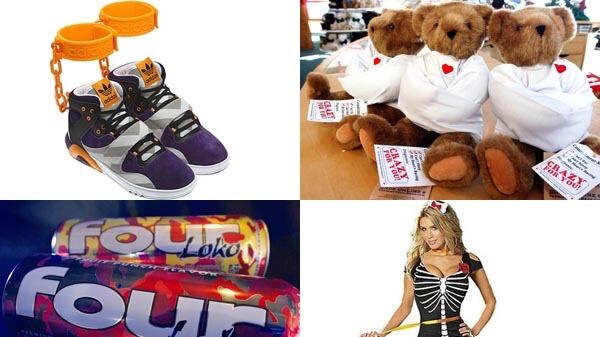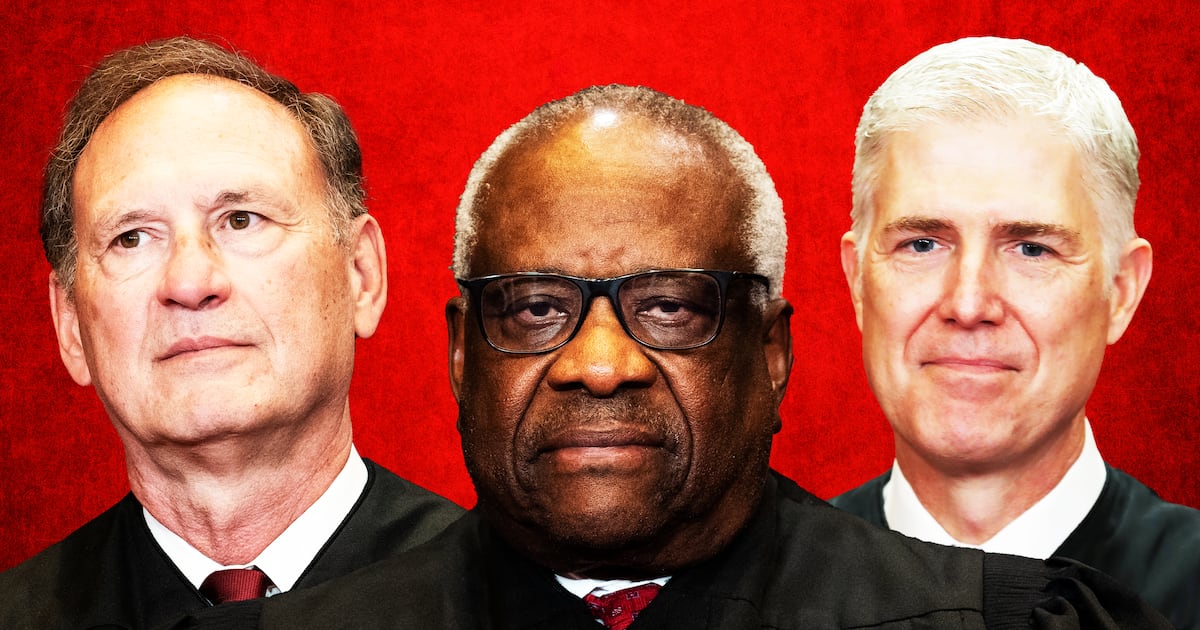
Adidas announced it would sell shoes with ankle shackles—then caved after a hail of criticism. See the ill-fated sneakers and other products, from an Oreo Barbie to children’s thongs to flavored cigarettes, that have been pulled over the years.
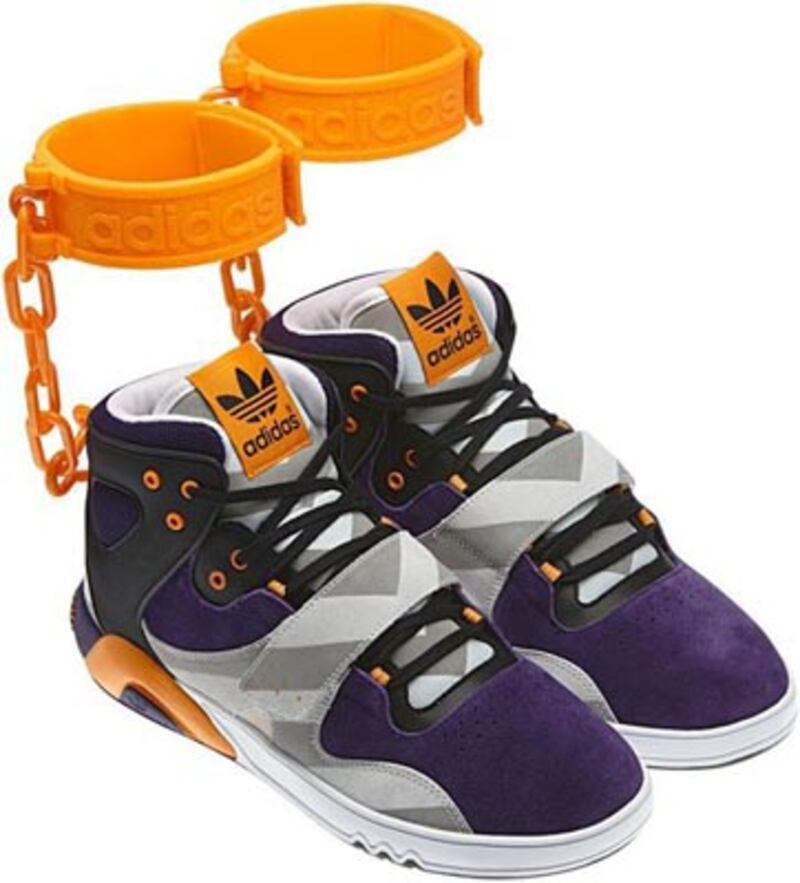
Adidas has canceled plans to produce a shoe featuring rubber ankle shackles attached by a chain to each shoe. Critics were irate, pointing out that shackles are often associated with slavery. Though the design was pulled, the company defended it, saying it was “outrageous and unique.” There’s certainly something outrageous about it.

In 2002 Abercrombie’s children’s line began producing thongs in kids’ sizes embroidered with slogans like “Eye Candy” and “Wink Wink.” The company issued a statement claiming the underwear was supposed to be “lighthearted and cute” and that “any misrepresentation of that is purely in the eyes of the beholder.” Clearly it was in the eyes of enough beholders to get the product pulled from stores.
Wong Maye-E / AP Photo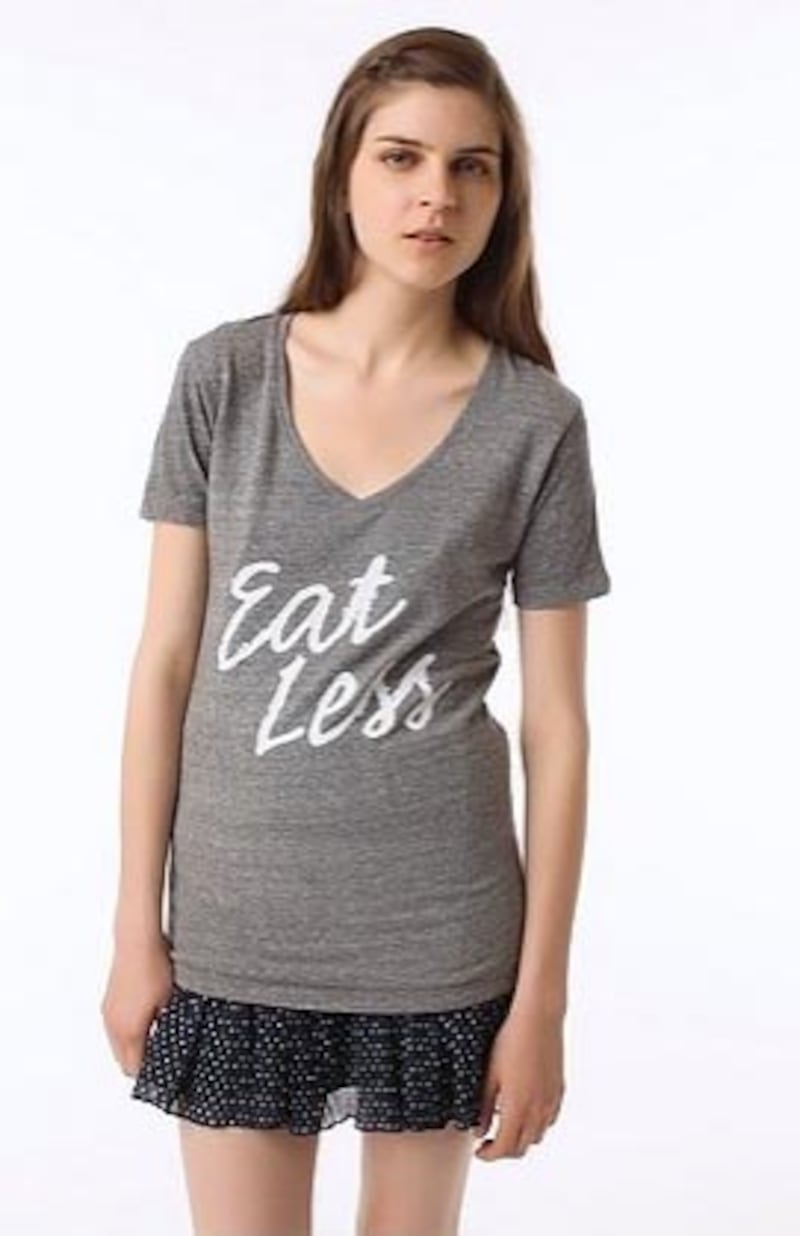
The youth-targeted store failed to see a problem in marketing an apparently pro-anorexia shirt to a teenage demographic in 2010. The shirt, which in its website picture was worn by a waifish, upset-looking model, was pulled from the website but not from stores. Stay classy, Urban Outfitters.
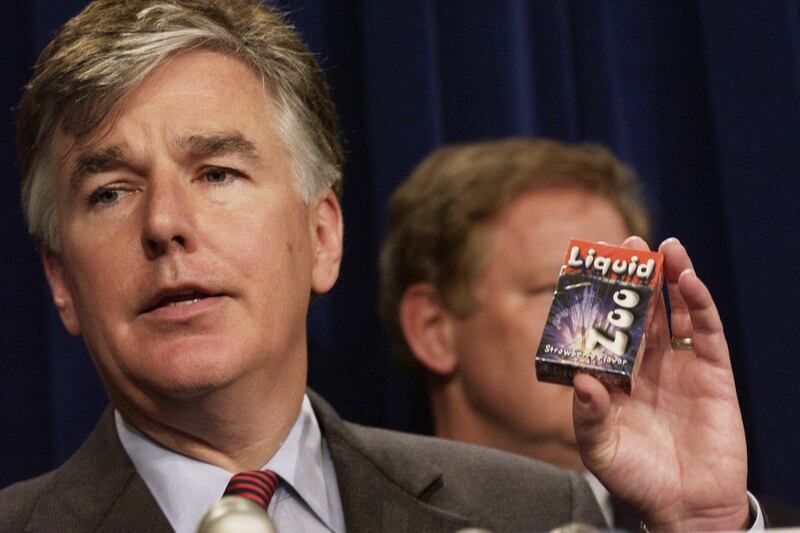
Flavored cigarettes, in such types as “mandarin mint” and “Kauai Kolada,” were intended to appeal to young people and others who might not like the taste of cigarettes. The FDA caught on in 2010 and banned them, forever depriving the world of the mixture of artificial fruit flavor and smoke. Good call.
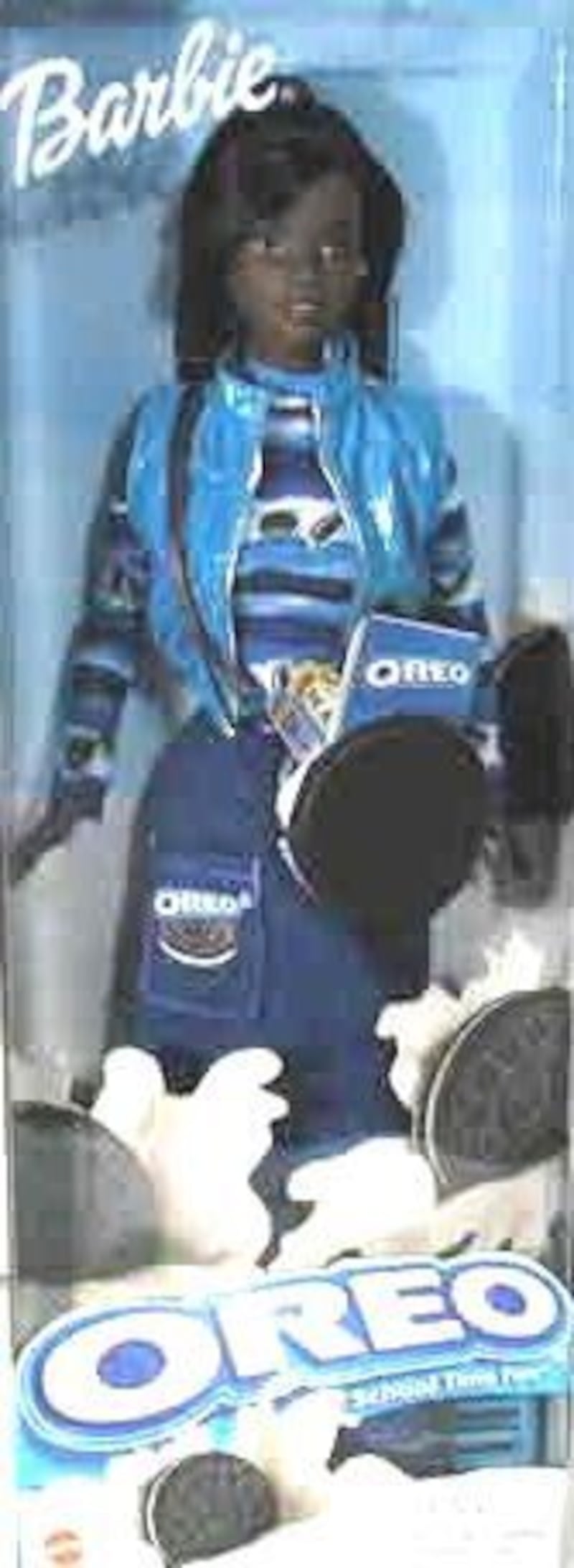
In 1997 Mattel and Nabisco teamed up for what seemed like a great opportunity: what could be a better match for America’s favorite doll than its favorite cookie? As usual, the company made both white and black versions of the Oreo-themed doll. What everyone hopes they didn’t realize is that “oreo” is a pejorative term for a black person who supposedly acts white. The Barbie doll obviously didn’t sell well and ended up getting recalled. Oops.
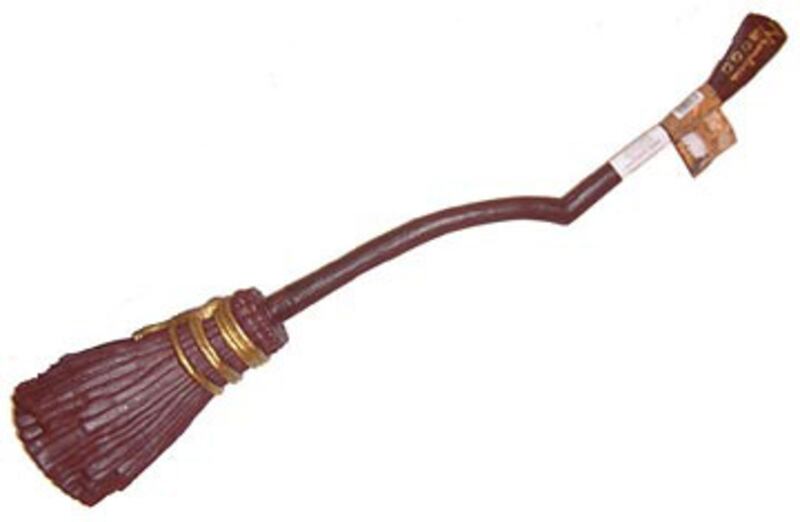
In 2002, during the height of the Harry Potter craze, Mattel released a battery-operated Nimbus 2000 broomstick modeled on the flying version in the movie. Why was it battery-operated? Well … it vibrated. Girls responded enthusiastically—and Mattel eventually pulled the toy.
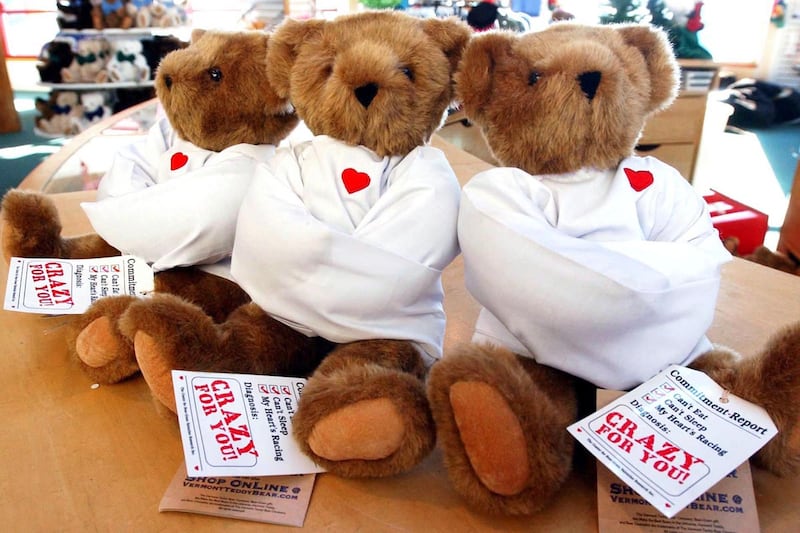
This was a hot seller for Valentine’s Day 2005 … until mental-health advocates protested. The $70 toy came in a straitjacket and was packaged with commitment papers. It was discontinued after the Vermont Teddy Bear Co. realized that there are better ways to show love than with outdated stereotypes.
AP Photo
The parody board game released in 2003 was marketed as a game of “buying stolen properties, pimpin’ hoes, building crack houses and projects, paying protection fees, and getting carjacked.” Urban Outfitters, which for some reason thought it would be a good idea to sell racism in a box, soon stopped selling it “due to customer concerns.”
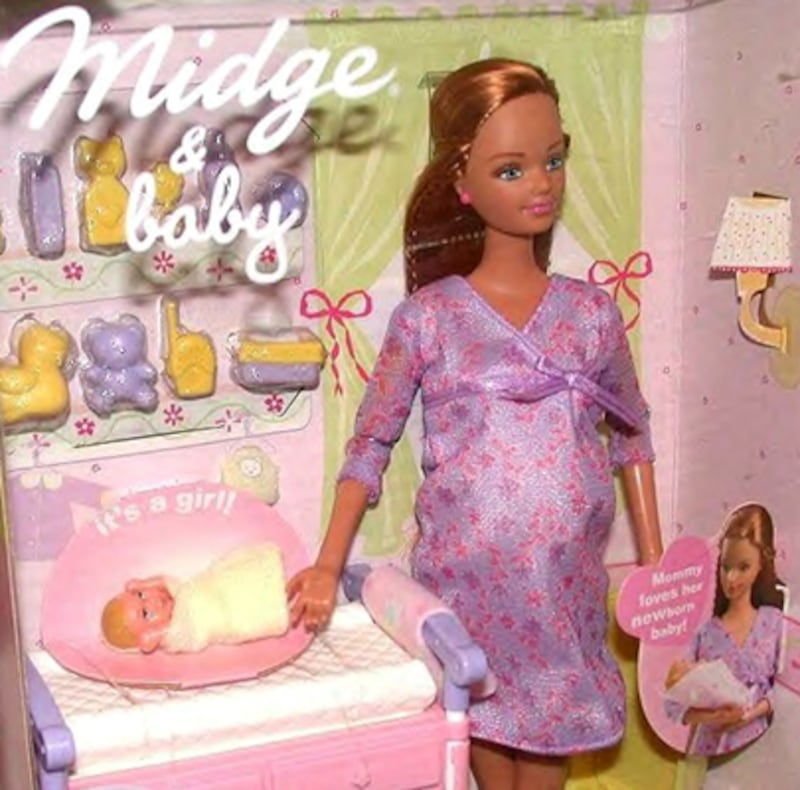
Mattel released Midge’s family—plus a bun in the oven—in 2002, just in time for the holiday season. But the otherwise popular toy did not sit well with Walmart customers, which led to the store pulling the doll set from its shelves until a non-pregnant version was made available. Contrary to what the customers would tell their children about where babies come from, the new set did not include a stork.
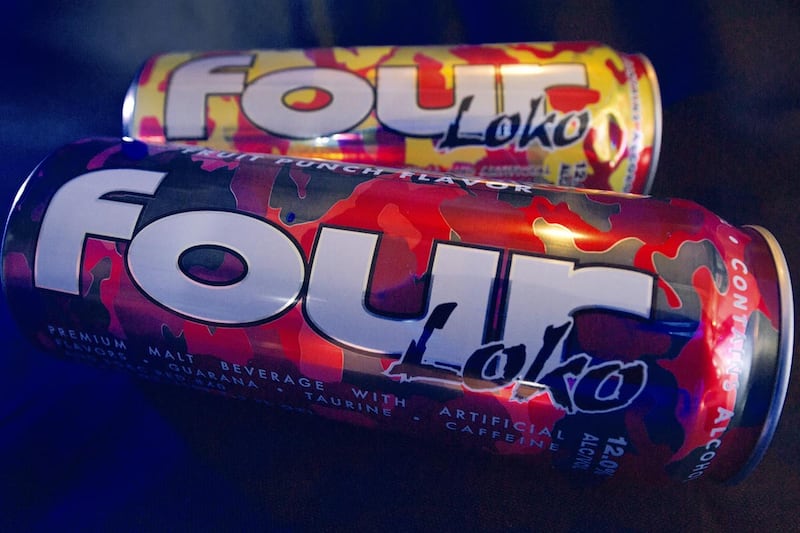
The infamous alcoholic energy drink got its name from its four primary ingredients (alcohol, caffeine, taurine, and guarana) and its ability to make drinkers “horny, hyper, and happy.” It also had the alcohol equivalent of about four cans of beer, and the dangerous alcohol-caffeine mix was banned in several states in 2010. The drink still exists in a non-caffeinated version that renders drinkers considerably less loco.
Paul J. Richards, AFP / Getty Images
Last Halloween the industry that brought you Sexy Big Bird managed to top itself by producing a sexualized version of eating disorders. The costume, basically a trampy skeleton dress with a tape measure attached to the waist, was pulled by several retailers after critics pointed out that dressing as an anthropomorphized psychological issue was not their idea of a fun time.

